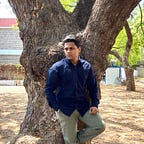A piece of heart in the streets of Chitkul
Pruthvi was a chosen candidate in the travel company he had opted to work for as a writer. It was not a complicated affair, he had built a wonderful resume — chosen the right words and phrases — and more importantly, chosen to side with his strengths. He had to merely following his instincts thereafter.
He was on cloud nine, because his first project had him choose the destination to travel to, and so he began looking for beautiful places around. A friend of his jumped in and made a rather loose comment just then, “If I were you I wouldn’t think too much. Himachal Pradesh has always been an artists’ haven. I would’ve been there. If only”. That was sufficient for Pruthvi as a thought was planted in his head. He was sure to look for places in Himachal Pradesh. He began hunting and not too late he zeroed in on the ‘Last village on the border of India and Tibet’- Chitkul. He was interested particularly about the idea of Chitkul being on the border of two countries. And thus began his journey. Pruthvi finished all the formalities with his new company and decided to leave soon.
Traveling to Chitkul was going to be all things fun, and of course, like the fellow travelers, he chose the longest route.
There is an idea for a writer, especially one who travels — every road, every turn, every halting point has a story that guys like Pruthvi are expected to narrate to the readers.
Pruthvi chose to travel to Delhi first, and then he would board a bus to Chandigarh, from Chandigarh to Shimla, and the last bus, on to Chitkul. His journey did provide him some fresh moments — he spoke to individuals from different corners, train journeys especially helped him connect better than he could in any which way. Train journeys, particularly in India, and more specifically if they are long journeys, is like settling down in a small society. Pruthvi had numerous conversations with his fellow passengers, in fact so varied and deep that he ended the journey forming new, firm familial bonds with folks in there.
All the traveling and bonding finally lead to the last bus that would take him to Chitkul. As he boarded and sat by the window, he went silent. Silence everywhere. Not even a thought that ushered in. He simply looked out. Mountains do fascinate, of course, but Pruthvi saw stories. Every portion of the mountains clad in stories of varied kinds. He couldn’t wait to get to the destination, and finally as the bus halted, he sensed he was there. A huge sign board that read, “Welcome to the last Indian Village- Chitkul”. He walked in, and as he moved across, there were streets filled with tiny tea shops. There were many. But what caught his attention was a Dhaba that was named “Hindustan ka Aakhri Dhaba”, which translates into English as ‘The last Indian Dhaba’. It was located beneath the village road, it was as though he was climbing down a steep hill. He spoke to the Dhaba owner and requested him for dinner. He decided to eat there for the rest of his time in Chitkul.
He was put up in a decent room, although he thought hostel stay would’ve been better. But there’s something about privacy which gives writers a rush to craft their stories in a better fashion.
Pruthvi wanted to explore more of Chitkul, he decided to walk through the narrow, uphill streets. He came across a lot of women who were busy with their daily chores. Albeit dressed in their traditional outfits, with a woolen cloth draped around their head, covering their ears — weather was harsh indeed. They looked different at first, but their vigor reminded him something very distinct. He had seen women in his house, energetically moving around, finishing up the chores, similar to the women he noticed here. Some things never change, he thought, as he smiled reminiscently.
He saw a few middle-aged men gathered around a bonfire, probably discussing politics, or perhaps their family stuff. He didn’t eavesdrop. A few kids caught his attention, as they were playing volleyball. He decided to join the kids. He played for a while, and once he was done he looked at the kids who were, by that time rushing back to their ghetto; it was then that his heart let out a huge sigh, as he hoped to be one of those kids rushing back to home to his angry father and concerned mother. But then this was a different place, it was amid the mountains, he thought the story might be different here. Suddenly Pruthvi snapped back to reality, strangely he was reminded of his hometown and he wanted to go back there. He rushed to his room to dial up his family back in his hometown; the sinking feeling of having come so far away from his home was taking over as he quickly dialed up and waited for an answer. As he heard a reassuring voice from the other end, that of his mother, he felt relaxed. As he ended the call, he stood by the small window of his room; the window pane looked rustic, and it seemed as though it had invoked the poignant feeling in many others before Pruthvi, thanks to the breath-taking landscape that could be gazed through it. He could see a portion of the huge mountains, thankfully not covered in fog yet; he was teary-eyed, he felt as though he was blanketed by the fog, and that he was gradually being carried over across the mountains; he knew then, a big piece of his heart was ready to sink into the streets of his new home — Chitkul.
